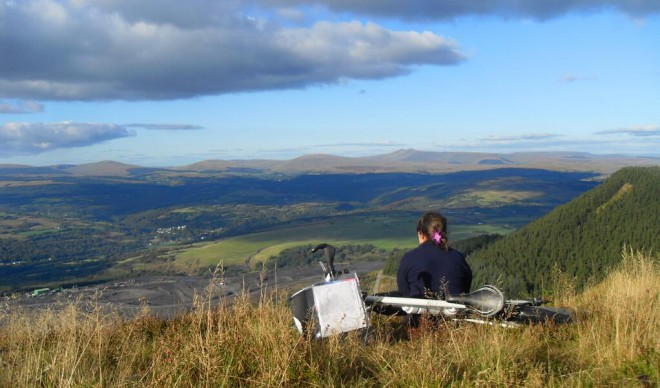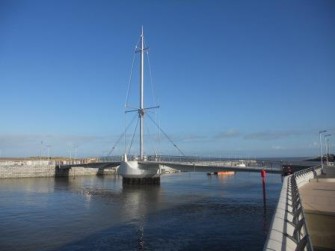
Wales Passes Unique New Walking and Cycling Legislation
 Cycling in Wales can be this beautiful - and the Welsh National Assembly now wants to make it even better. Photo (c) @bedsforcyclists/Twitter
Cycling in Wales can be this beautiful - and the Welsh National Assembly now wants to make it even better. Photo (c) @bedsforcyclists/Twitter
Will Wales become Europe’s next active travel boom region? Solid foundations have now been laid by the Welsh national assembly who passed in November the “Active Travel (Wales) Act 2013” - the world’s first active travel legislation, according to ECF member Sustrans.
As in any other part of Europe, the potential for cycling in Wales is tremendous: half of all trips are under 3 miles (5km); nearly 1 in 5 trips under 1 mile (1.6km) is done by car. Yet well intended past attempts to tap into this potential by the Welsh public authorities, for example the Walking and Cycling Action Plan for Wales 2009 – 2013, did not deliver. The percentage of adults cycling to work was supposed to triple as a result, but it remained flat at just 1 % of all trips; more children were supposed to walk to school to achieve average UK levels, but in fact walking to school declined by a further 11%.
The main reasons why the plan failed, identified by ECF member Sustrans, may sound familiar to others as well: the Welsh Government level or by local councils did not prioritise cycling ; the budgets for cycling are small (£ 3.30/ € 3.90 per inhabitant), and most local authorities have no strategic plan for building a cycle route network, contrary to roads. As a consequence, cities and towns are not attractive for people who wish to walk or cycle. Taking the car even for short distances is normal in Wales.
Turning things around
To finally bring about the change Wales had been hoping for, the Welsh National Assembly has passed the Active Travel Act this November. Under the act, all local authorities must prepare a map of existing routes within 1 year; in addition, each local authority has to prepare an integrated network map of new and improved active travel routes within 3 years. What's more, the authorities have to involve citizens and local stakeholders throughout the process. Both items - the existing route map as well as the integrated network maps - must be submitted to the Welsh Ministers who need to approve them. On the part of the central government, the Act requires Welsh ministers to produce an annual progress report on the state of play on active travel in Wales.
It may not have come out the way it did without some strong voices from cycling advocacy. Sustrans Wales has been strongly advocating for the Active Travel Act. Policy Advisor Matthew Hemsley says, “We expect there to be a lively annual debate in the National Assembly of Wales on active mobility. This will bring the issue into the centre of public attention and debate - and with it the commitment and sustained funding from all authorities in order to make Wales a champion in walking and cycling.”
5 years to create active mobility infrastructure
By obliging local authorities by law to undertake very concrete steps, Wales has taken active travel promotion into unprecedented waters. The Act provides for a 5 year lead time to assess to what extent it has delivered. By then a review of the operation of the Act has to be carried out. Matthew Hemsley only regrets one thing. The Act is quite “infrastructure heavy”, he says. “As evidence shows we need both hard and soft measures to maximise potential for shifting journeys to active travel”, he concludes.
A beginning has been made, though. And having adopted the world's first active travel legislation, as Sustrans underlines, is something Wales can definitely be proud of.
Fabian Küster is ECF's Senior Policy Officer. Before ECF I have worked in Brussels for a German Member of European Parliament and the German Embassy. As Policy Officer Fabian focuses on general mobility and road safety issues – a challenging task because cycling as a means of transportation is often still not on the mindset of politicians.
- Log in to post comments
Contact the author
Recent news!
Upcoming events
Contact Us
Avenue des Arts, 7-8
Postal address: Rue de la Charité, 22
1210 Brussels, Belgium











